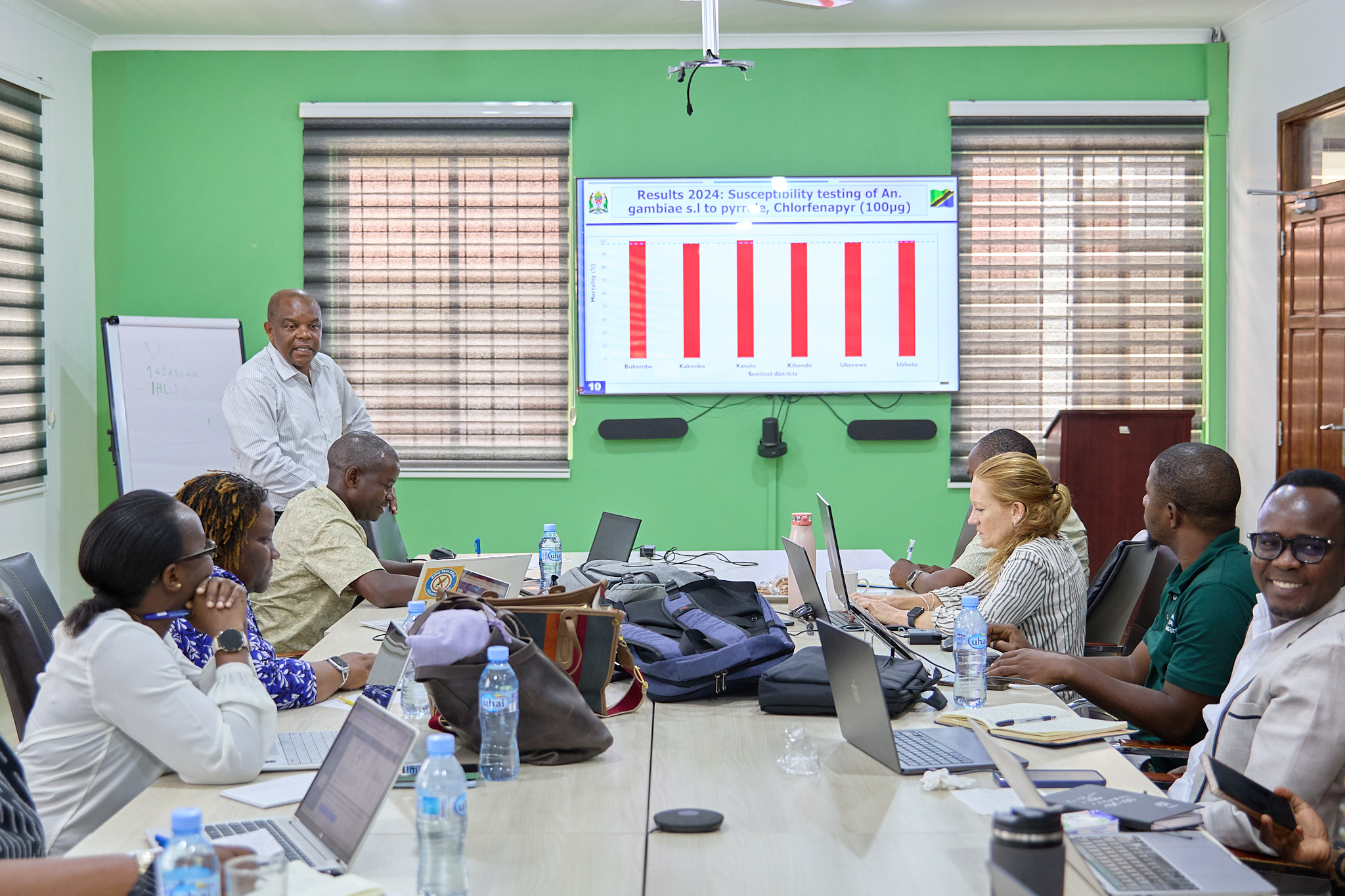
MEETING: Stakeholders discuss bed-net durability, distribution in Tanzania

In Dar es Salaam, Tanzania on March 5, 2025, researchers and policymakers gathered for the third ViALLIN Stakeholder Engagement hosted by the Ifakara Health Institute’s Vector Control Product Testing Unit. The meeting focused on evaluating the field durability of dual-active ingredient insecticide-treated nets (ITNs) and strategies to improve their distribution in Tanzania Mainland.
The "Visual Analysis of Long-Lasting Insecticide-Treated Nets (ViALLIN)" project aims to enhance ITN procurement decisions by prioritizing value for money over cost alone, using routine ITN durability monitoring data to guide evidence-based policymaking.
Opening the meeting, Dr. Zawadi Mageni Mboma – Business Development and Partnerships Specialist, who represented Ifakara Health Institute Chief Executive Director Dr. Honorati Masanja, highlighted the importance of national and international collaboration in malaria control. She reaffirmed Ifakara’s dedication to fostering partnerships that drive impactful public health interventions.
Dr. Charles Dismas Mwalimu, Head of the Vector Control Unit at the National Malaria Control Program (NMCP) under the Ministry of Health, provided an overview of ITN distribution efforts in 2024 and outlined strategic plans for 2025.
For his part, Emmanuel Mbuba, ViALLIN’s Principal Investigator, presented the study’s implementation progress, setting the stage for in-depth discussions.
Then, stakeholders engaged in an intensive technical and operational dialogues, exchanging insights and recommendations to strengthen ITN distribution strategies. The meeting reinforced the need for continued collaboration to ensure that ITNs remain effective in malaria prevention efforts.
The event gathered experts from Ifakara, NMCP, National Institute for Medical Research (NIMR), and President’s Office – Regional Administration and Local Government (PO-LARG).
More: About ITNs and the Ifakara role
Insecticide-treated nets, commonly known as ITNs, represent one of the most effective tools in the fight against malaria, a disease that continues to claim numerous lives, particularly in sub-Saharan Africa. These nets, typically crafted from materials like polyester or polyethylene, are infused with long-lasting insecticides such as permethrin or deltamethrin.
The dual mechanism of ITNs—acting as both a physical barrier to prevent mosquito bites and a chemical weapon to repel, disable, or kill mosquitoes—makes them exceptionally potent. Their widespread use in malaria-endemic regions has been shown to reduce transmission rates significantly, with studies indicating they can cut malaria cases by as much as 50% and lower child mortality by approximately 20% when consistently utilized. Distributed extensively through public health campaigns, ITNs have become a cornerstone of global efforts to control this deadly disease, protecting millions of vulnerable individuals as they sleep.
In this broader context, the Ifakara Health Institute, or simply Ifakara, based in Tanzania, plays a pivotal role in advancing the science and application of ITNs. As a leading research organization in Africa, Ifakara focuses on generating evidence-based solutions to pressing health challenges, with malaria control being a key priority. The institute has made substantial contributions to the development, evaluation, and optimization of ITNs, ensuring their effectiveness in real-world settings. Through rigorous field studies, Ifakara assesses not only the efficacy of these nets but also their durability and acceptance within communities—factors critical to their success.
One of Ifakara’s notable efforts includes monitoring insecticide resistance among mosquito populations, a growing concern that threatens the long-term viability of ITNs. By collaborating with global health bodies like the World Health Organization and local governments, IHI helps refine malaria control strategies, ensuring that ITNs remain a practical and impactful intervention.
Beyond evaluation, Ifakara is also at the forefront of innovation. The institute works on the development of next-generation ITNs, incorporating improved insecticides to address the challenge of resistant mosquitoes. This forward-thinking approach ensures that ITNs evolve alongside the changing dynamics of malaria transmission.
Furthermore, Ifakara’s research has had a tangible influence on policy, particularly in Tanzania, where its findings have shaped the national malaria strategy, guiding how ITNs are distributed and used across the country. By bridging the gap between scientific inquiry and practical implementation, the Ifakara Health Institute strengthens the global fight against malaria, reinforcing the indispensable role of ITNs as a lifesaving tool. Through its efforts, Ifakara not only enhances the efficacy of this intervention but also exemplifies how localized research can have a far-reaching impact on public health.
